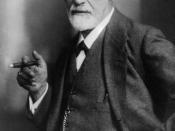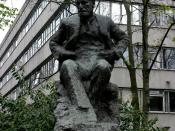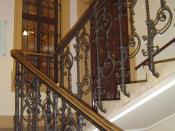Sigmund Freud, an Austrian born during the Habsburg Monarchy, was one of the trailblazers of modern-day psychology. The american historiam william johnston sees freud, the father of psychoanalysis, among those personalities 'that one made austria a shining example of modernism in a world that had lost orientation.'
In his function as a neuropathologist freud came to realize that he had no clear understanding of neurotic patterns despite his throrough studies of the human brain. From 1895 onwards he associated intensely with the Viennese internist Josef Breuer. Both discovered that hypnosis removed neurotic symptons. The case of patient Anna O. became famous.
By applying this method, Freud came to understand the correlation between emotional disorders and the formation of mental (at that time mainly hysterical) symptoms. Through hypnosis as a method of 'mental catharsis' the patient recalls and relives repressed traumatic situations and is eventually relieved and healed. Freud was now convinced that functional diseases had a mental cause.
In the following he discovered how mental energies may casue physical symptoms.
After breaking with Breuer Freid found out that the abnormal emotional state of neurotics was almost invariably associated with conflicts involving the sexual impulse. Based on these findings he develoepd his theory on repression and defense as well as the sexual aspect of neurotic behaviour.
Freud was unjustly blamed with 'pansexualism'. His theories created a storm in meical circles and were often and heavily rejected. However, what Freud had theoretically taught most of his life was rather a 'dialectic of the sexual impulse' than its omnipotence. After breaking with Breuer Freud carried on his research work alone. Instead of hypnosis he applied the method of 'free association' with his patients and soon recognized the traumtic impact of early sexual experience during childhood, seducations on the part of adults,


